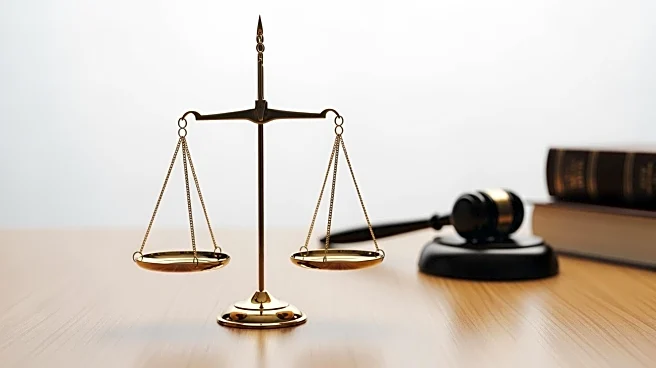What's Happening?
The U.S. Equal Employment Opportunity Commission (EEOC) has stated that its enforcement of federal laws, including those related to gender identity discrimination, is a core executive function that is generally
insulated from judicial review. This assertion was made in response to a legal challenge from a Maryland legal services nonprofit, which alleged that the EEOC unlawfully abdicated its statutory and constitutional obligations to protect transgender workers from discrimination. The EEOC argued that allowing the case to proceed would violate the separation of powers and Title VII of the 1964 Civil Rights Act, as it would turn the district court into an overseer of the Commission's enforcement process.
Why It's Important?
This development highlights the ongoing debate over the scope of executive power and the role of the judiciary in overseeing federal agencies. The EEOC's stance could have significant implications for the enforcement of antidiscrimination laws, particularly those protecting LGBTQ+ individuals. If the court sides with the EEOC, it may limit judicial oversight of agency decisions, potentially affecting how discrimination cases are handled. This could impact the ability of advocacy groups to challenge perceived inadequacies in federal enforcement of civil rights protections.
What's Next?
The court's decision on whether to allow the case to proceed will be closely watched by civil rights advocates and legal experts. A ruling in favor of the EEOC could set a precedent for limiting judicial intervention in agency enforcement actions, while a decision against the EEOC could empower advocacy groups to challenge federal agencies more effectively. The outcome may influence future litigation strategies and policy discussions regarding the balance of power between the executive branch and the judiciary.










